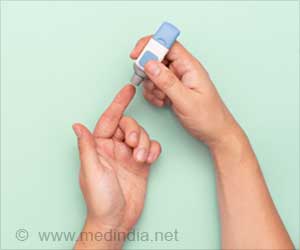This revolutionary technique can potentially monitor the aging process of 11 major body parts, including critical organs such as the heart, brain, and lungs. The findings stem from an extensive study involving more than 5,000 patients (
).
The researchers employed a sophisticated machine-learning algorithm to scrutinize over 4,000 proteins present in the blood. Through this analysis, the team could make predictions about the current state and age of 11 distinct organs within the human body. This groundbreaking approach offers a glimpse into the internal aging process, providing valuable insights that were previously difficult to obtain.
. This phenomenon is often associated with a heightened risk of mortality, ranging between
.
Shockingly, the research suggests that one to two individuals out of every 100 may possess organs testing older than their actual birth years. These statistics underline the significance of understanding internal organ aging for preventive healthcare.
Advertisement
The scientists behind this groundbreaking research believe that their findings could play a crucial role in identifying which organs are undergoing rapid aging. This, in turn, may help foresee and address potential health issues before they escalate.
For instance, detecting a heart that ages faster than a person’s biological age could signal an increased risk of heart failure. Similarly, a rapidly aging brain might be more susceptible to conditions like dementia.
Linking Organ Aging to Disease Risk
The study establishes a clear connection between the accelerated aging of one or more organs and a higher risk of specific diseases and mortality over the next 15 years. Dr. Tony Wyss-Coray, one of the investigators, highlighted, “When we compared each of these organs’ biological age for each individual with its counterparts among a large group of people without obvious severe diseases, we found that 18.4% of those aged 50 or older had at least one organ aging significantly more rapidly than the average.
Recognizing the transformative potential of their research, the team at Stanford University has taken steps to patent the blood test. This move aims to facilitate the widespread use and potential commercialization of the methodology in the future.
However, the researchers emphasize the necessity of conducting more studies to validate the accuracy of their model in predicting organ age and overall health.
In conclusion, the development of this blood test marks a significant stride in our understanding of internal organ aging, opening doors to proactive healthcare interventions and personalized treatment plans based on individual organ ages.
As this research progresses, it promises to revolutionize preventive medicine and reshape how we approach health assessments.
Reference :
- Stanford Medicine-led study finds a way to predict which of our organs will fail first – (https:med.stanford.edu/news/all-news/2023/12/aging-organs.html)
Source: Medindia



